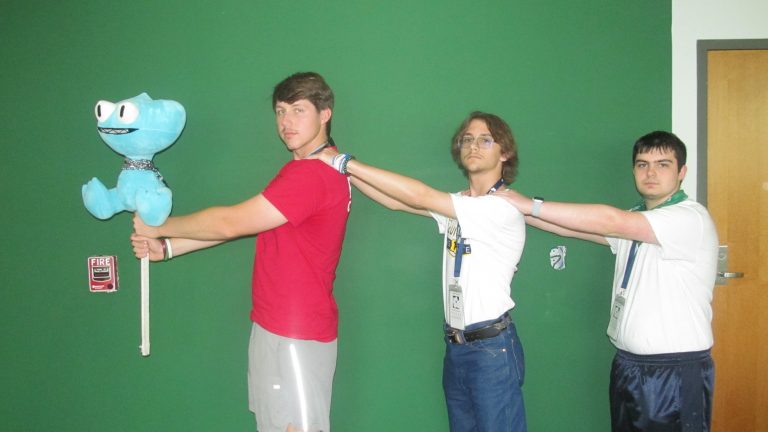An ordinance was passed by Mississippi Parish on Wednesday to encourage chant participation: a wheel will be spun the night before to select a citizen who will create and lead a chant and remain generally vocal throughout the following day. The punishment for refusal will be chosen by the sheriff and Parish President. However, the ordinance did not go unchallenged. The city of Lafourche, within Mississippi Parish, opposed the ordinance, claiming that it was unconstitutional and that the punishment was evidence of an unlawful consolidation of power. The city of Lafourche aimed to set a precedent and make Louisiana Boys State history by becoming the first city to nullify a Parish ordinance. This precedent was also meant to lay the groundwork for future Louisiana Boys State citizens to defend themselves against Parish laws they deem unfair.
Hopes and excitement were raised for the defense as they prepared to make their voices known. Councilman Ethan Frazier noted, “We can’t take it lying down”, while Mayor Thomas Simoneaux concurred, “The people yearn for liberty, and in Lafourche, we stand up to tyranny.” Public Defender Adam Delaune noted that it is important to encourage thought on every citizen’s rights and uphold them.
The prosecution and defense teams, composed of citizens from both Lafourche and LaSalle, gathered for the trial. Upon arriving at the Supreme Court, the prosecution quickly argued that the ordinance was based on collective responsibility, and that a majority of citizens from both cities in the Parish had voted in favor of it. The defense responded with a critique of the ordinance’s wording regarding the specifics of the punishment, citing the U.S. Supreme Court case of Chicago vs. Morales. A parallel was drawn between the present case and that Supreme Court Case, calling into question the possible unlimited severity of the punishment due to the vague wording.
After deliberation, the Court ruled that Parish decisions are superior to city decisions, and that no city has the power to nullify a Parish law unless it is directly unconstitutional under Boys State Law. However, the Court also ruled that it is unconstitutional to coerce someone into a form of speech under threat of punishment, which will lead to a rewording of that section of the ordinance. The ruling brought an end to a historic moment in Boys State legal history.

